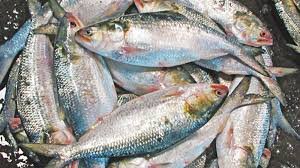The Tripura Fisheries Department has announced that it will sell around 6,000 kilograms of fish at subsidized rates across the state to mark Poila Boishakh, the Bengali New Year. The initiative will take place on Tuesday, April 15, 2025, and aims to make fish—an essential part of New Year celebrations—affordable and accessible for all citizens. Officials said the fish will be sold through government-run outlets and temporary stalls in various districts.
The department has collaborated with fish farmers, cooperative societies, and fisheries federations to meet the demand. Local fish such as Rohu, Katla, and Tilapia will be available at controlled prices. The move is part of the government’s broader effort to support consumers during major cultural festivals while also promoting the state’s fishery economy. The initiative reflects a conscious attempt to balance consumer needs with the welfare of the fish farming community.
Fisheries officials revealed that this is not the first time they are running such a program. Similar schemes in previous years have received strong public response, and the government expects a greater turnout this year due to wider awareness and improved supply chains. Officials have already dispatched consignments to key locations in Agartala, Udaipur, Dharmanagar, and other towns to ensure that consumers can access fresh fish without logistical delays.
Tripura’s Fisheries Minister said the government has ensured transparency in pricing and quality control at all outlets. He added that surprise inspections will take place during sales hours to maintain fairness and hygiene. He stated that the state is committed to uplifting rural livelihoods and preserving traditions simultaneously. By supplying high-demand food items at fair prices, the government also ensures that no citizen feels left out during the celebrations.
The minister also highlighted the rising popularity of the fisheries sector in the state. He said that under recent schemes and subsidies, more youth have joined fish farming, leading to higher production. This year, the department has sourced the fish from over 40 local farms, minimizing dependency on imports and boosting self-sufficiency. He stressed that such initiatives help build consumer trust in local produce and encourage farmers to expand their businesses.
Consumers have already begun making inquiries at local fisheries outlets. Many families, especially from middle and lower-income groups, have expressed appreciation for the state’s decision to offer fish at reduced prices. They said it eases the burden of festival expenses and allows them to celebrate the occasion with traditional meals. Residents in rural and urban areas alike have welcomed the move, calling it both thoughtful and timely.
Fish traders and cooperative members also view the event as an opportunity to engage directly with the public. A representative from one of the participating cooperatives said that such festivals allow them to showcase their produce and earn reasonable profits without facing exploitation from middlemen. He noted that the arrangement benefits both producers and consumers and boosts community participation.
Local authorities have arranged transportation facilities for smooth delivery and distribution of fish. Cold storage trucks and insulated containers have been mobilized to maintain freshness. Officials said that most of the sales points will operate from early morning until stocks last, with expected peak crowds during the first half of the day. Security and crowd control measures have also been put in place at major locations to ensure a smooth buying experience.
Cultural groups and municipal bodies have also stepped in to support the event. Several city councils have set up complementary stalls selling vegetables and spices, making it easier for residents to shop for their festival needs in one place. In Agartala, the capital city, a festive atmosphere has already begun to take shape with decorations, music, and early morning shoppers visiting markets.
As Poila Boishakh approaches, the state gears up to welcome the new year with cultural fervor and culinary joy. Through this initiative, the Tripura government aims to blend tradition, food security, and economic inclusion into one celebratory gesture that resonates with all.


